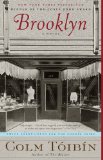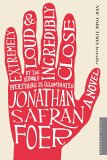Summary | Excerpt | Reading Guide | Reviews | Beyond the book | Read-Alikes | Genres & Themes | Author Bio

From the book jacket: Nathan Glass has come to Brooklyn to die. Divorced, estranged from his only
daughter, the retired life insurance salesman seeks only solitude and anonymity.
Then Nathan finds his long-lost nephew, Tom Wood, working in a local bookstore - a
far cry from the brilliant academic career he'd begun when Nathan saw him last.
Tom's boss is the charismatic Harry Brightman, whom fate has also brought to the
"ancient kingdom of Brooklyn, New York."
Through Tom and Harry, Nathan's world gradually broadens to include a new set of
acquaintances - not to mention a stray relative or two - and leads him to a
reckoning with his past.
Among the many twists in the delicious plot are a scam involving a forgery of
the first page of The Scarlet Letter, a disturbing revelation that takes place
in a sperm bank, and an impossible, utopian dream of a rural refuge. Meanwhile,
the wry and acerbic Nathan has undertaken something he calls The Book of Human
Folly, in which he proposes "to set down in the simplest, clearest language
possible an account of every blunder, every pratfall, every embarrassment, every
idiocy, every foible, and every inane act I had committed during my long and
checkered career as a man." But life takes over instead, and Nathan's despair is
swept away as he finds himself more and more implicated in the joys and sorrows
of others.
Comment: When reading reviews in the media it is so easy to fall into the
trap of thinking that a particular opinion is that of the newspaper or magazine
itself, whereas in reality it is just the opinion of one person, albeit someone
who has probably read more widely than most. This is why, at BookBrowse, I
always try to gather as wide a range of opinions as I can - because so often, as
the saying goes, one man's meat is another man's poison, and it is easy to be put off a particular book simply because of having read one negative
review.
The Brooklyn Follies is a case in point. If you were to read
Publishers Weekly and Booklist (who both award it coveted 'starred review'
status) you'd be rushing to the bookstore before breakfast; but if you read,
Kirkus Reviews (one of the other pre-publication review sources) you'd have a
very different perspective; to quote Kirkus: "It's hard to be ironic and warm
and fuzzy simultaneously.. [Auster] shouldn't try to be Anne Tyler (or, God help
him, Nicholas Sparks). An egregious misstep in an otherwise estimable career."
So who do you believe? Like everything in life, I suggest you listen to
what others have to say and then make up your own mind! This is, of
course, exactly what you can do at BookBrowse - by first reading the range of
critical opinion and then browsing a substantial except for yourself!
![]() This review was originally published in The BookBrowse Review in January 2006, and has been updated for the
November 2006 edition.
Click here to go to this issue.
This review was originally published in The BookBrowse Review in January 2006, and has been updated for the
November 2006 edition.
Click here to go to this issue.

If you liked The Brooklyn Follies, try these:

by Colm Toibin
Published 2010
Hauntingly beautiful and heartbreaking, Colm Tóibín's sixth novel, Brooklyn, is set in Brooklyn and Ireland in the early 1950s, when one young woman crosses the ocean to make a new life for herself.

Extremely Loud and Incredibly Close
by Jonathan Safran Foer
Published 2006
Unafraid to show his traumatized characters' constant groping for emotional catharsis, Foer demonstrates once again that he is one of the few contemporary writers willing to risk sentimentalism in order to address great questions of truth, love and beauty.
In youth we run into difficulties. In old age difficulties run into us
Click Here to find out who said this, as well as discovering other famous literary quotes!
Your guide toexceptional books
BookBrowse seeks out and recommends the best in contemporary fiction and nonfiction—books that not only engage and entertain but also deepen our understanding of ourselves and the world around us.